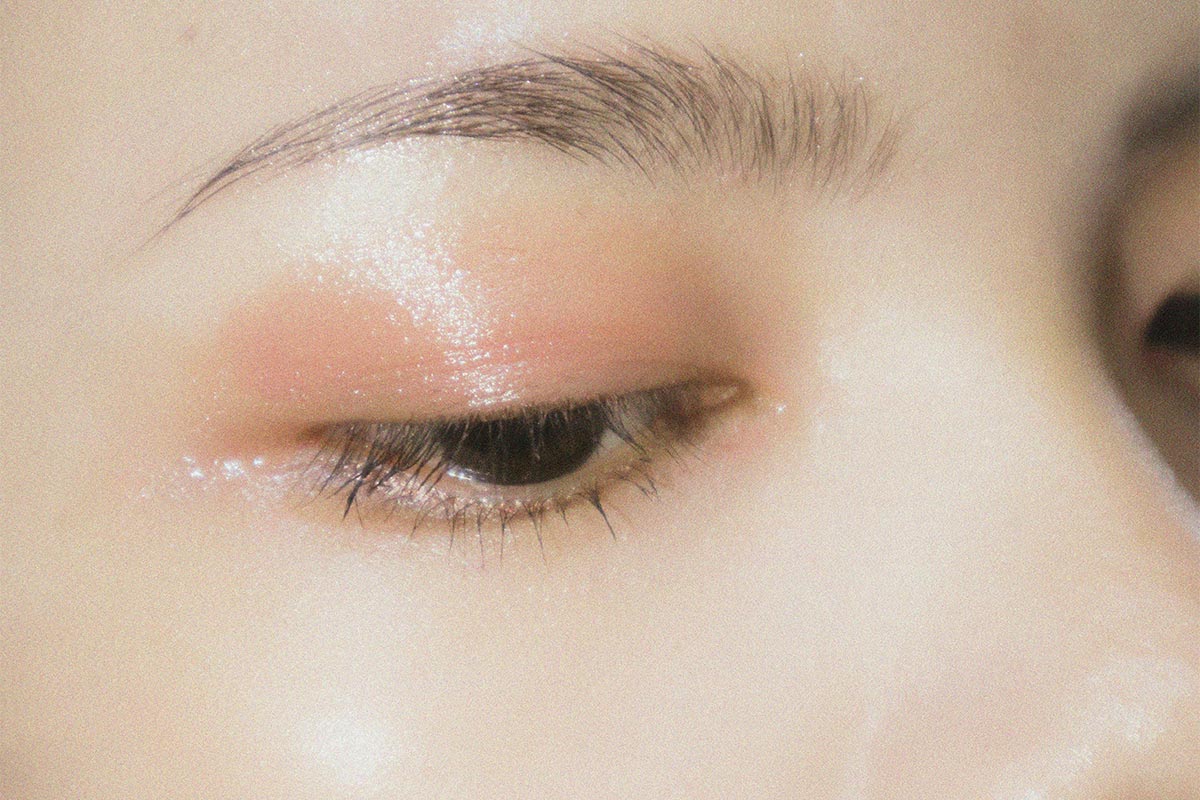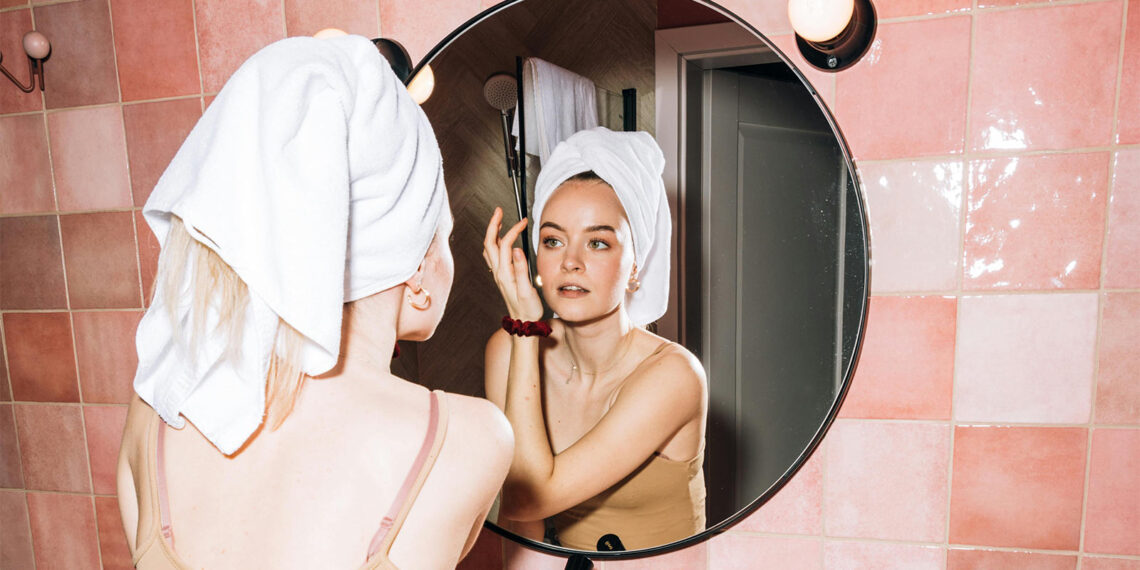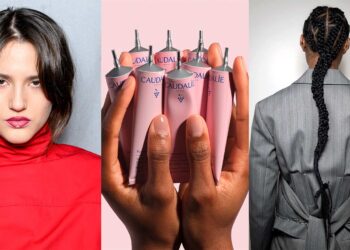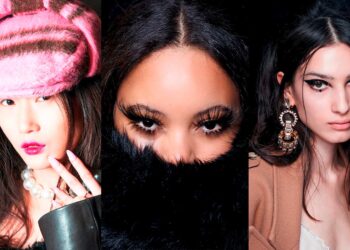Oh, my dear skin – sometimes it’s as smooth as a baby’s bottom, then it looks like a topographical map of the Alps. If you prefer the former, various cosmetic ingredients can help. Do you lack an overview? Our guide gives you a summary of the trendiest active ingredients.
Hyaluronic acid
What sounds like something that should have a skull and crossbones sticker on it has long been a regular on every cosmetics shelf. For good reason – after all, this stuff has a lot of magic in it. Hyaluronic acid is a sugar compound produced naturally in the body that decreases with age. This decrease leads to our dear skin losing elasticity and wrinkles gaining the upper hand. The use of biotechnologically produced cosmetic hyaluronic acid can provide a remedy: Moisture and elasticity of the skin are improved and wrinkles are visually smoothed – no wonder hyaluronic acid is something of the holy grail of anti-ageing cosmetics.
Collagen
Been twenty already? Then we have bad news for you: From this age, collagen levels fall by one percent each year. The skin becomes thinner and drier, making it an easy target for our nemesis, wrinkles. We don’t know whether your personal collagen glass is half empty or half full. What we do know, however, is that you don’t need to despair. As the body’s own protein, collagen ensures that our skin is firm and supple. If the body’s own collagen levels fall, we can turn to artificially produced collagen. This makes our skin appear younger as the collagen improves elasticity, firmness and moisture. Make us look old? Well, easier said than done.
Retinol
What sounds like something offered with a promising wink outside the club is actually an ace when it comes to skin renewal. Retinol is a form of vitamin A. It stimulates collagen production, ensures an even complexion and can reduce the depth of wrinkles. Retinol also stimulates skin renewal. It removes dead cells in no time at all. But beware! Retinol makes the skin temporarily more sensitive to the sun, which is why there is an increased risk of sunburn.

AHA
AHA stands for alpha-hydroxy acid. But as this reminds us of chemistry lessons, we prefer to stick with AHA. This is extracted from sugar cane or sugary fruits and is pretty good: AHA has an anti-ageing effect, evens out the skin tone and refines the pores. Even slight hyperpigmentation and scars can be reduced in this way. As with retinol, AHA also makes the skin more sensitive to sunlight after application, so be sure to apply sun protection!
BHA
BHA, also known as beta-hydroxy acid, removes the top layer of skin and thus supports the growth of new cells. Like AHA, BHA also ensures an even skin tone. It also clears clogged pores and soothes sensitive skin. Are you prone to acne? BHA can then help to alleviate inflammation.
Tiger grass (Centella Asiatica)
It’s pretty beastly what tiger grass can do. As the name might suggest, this is a plant. The chlorophyll it contains acts like a protective layer on our skin. Tiger grass stimulates collagen production and helps against reddened areas. It also stimulates cell growth and the formation of new peripheral blood vessels. This new formation is a blessing for tired skin. Slap on some tiger grass and shine brighter than the sun? Yes, please!
Niacinamide
Are blackheads gnawing at your self-confidence? Then we’ve found your new confidence booster. Niacinamide, also known as vitamin B3, helps against black spots. As an anti-aging active ingredient, this ingredient also smoothes and firms the skin and moisturizes. Are you a city kid? Then you’re in luck, because niacinamide also protects against environmental influences such as smog.
Propolis
What sounds like a city in ancient Greece is actually bee resin. The bees use it to insulate their dwelling. Propolis also has an antibacterial, antiviral and antifungal effect. And why should you smear bee insulation on your face? Propolis has an anti-ageing effect and helps against spots and wrinkles. As it soothes wounds, it can also provide relief for acne scars.
Chebula
Chebula has not been a member of the Hall of Fame of anti-ageing active ingredients for long. Yet the medicinal plant is already an old hand in Ayurveda. No wonder, after all, it can do a lot: Chebula is considered one of nature’s most powerful antioxidants and therefore helps to prevent premature skin ageing. But the Ayurvedic plant not only reduces wrinkles, it also moisturizes, which tightens the skin. Chebula is also said to help against psoriasis. So, time to spice up your facial care with a little miracle plant.
Have you found anything? You can add to your cosmetics collection here.
And here we reveal the best skincare routine for winter.
Photos: © Unsplash / Pexels








